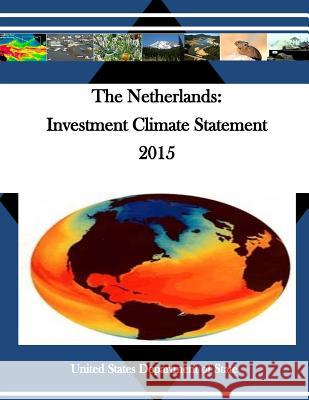The Netherlands: Investment Climate Statement 2015 » książka
The Netherlands: Investment Climate Statement 2015
ISBN-13: 9781530701551 / Angielski / Miękka / 2016 / 24 str.
The Netherlands: Investment Climate Statement 2015
ISBN-13: 9781530701551 / Angielski / Miękka / 2016 / 24 str.
(netto: 56,43 VAT: 5%)
Najniższa cena z 30 dni: 55,53 zł
ok. 13-18 dni roboczych.
Darmowa dostawa!
The Netherlands consistently ranks among the world's most competitive industrialized economies. It offers an attractive business and investment climate and remains a welcoming location for business investment from the United States and elsewhere. Distinguishing strengths of the Dutch economy include the Netherlands' stable political and macroeconomic climate, a highly developed financial sector, strategic location, well-educated and productive labor force, and high quality physical and communications infrastructures. Investors in the Netherlands take advantage of its highly competitive logistics industry, anchored by the largest port (Rotterdam) and fourth-largest airport in Europe. In telecommunications, the Netherlands has the highest internet penetration in the European Union (EU) and hosts the largest data transport hub in the world. The Netherlands is the largest recipient and source of foreign direct investment in the world and the largest historical recipient of direct investment from the United States. This position reflects the Netherlands' competitive economy and a tax climate that many corporations find favorable. The majority of investment flows to the Netherlands are not ultimately destined for the Dutch market, but rather pass through the Netherlands en route to another destination; nevertheless, the Dutch economy is characterized by a high degree of foreign investment in a wide range of sectors including logistics, information technology, and manufacturing. In the past year, the Dutch government has begun implementing significant reforms in key policy areas, including the labor market, the housing sector, the energy market, the pension system, and health care. Reflecting common Dutch practices, these reform policies were crafted following close consultations with key stakeholders, including business associations, labor unions, and civil society groups. Following a protracted recession that ended in late 2013 and anemic GDP growth of 0.8 percent in 2014, the macroeconomic outlook in the Netherlands is more positive for 2015 and 2016. The Dutch government projects economic growth of 1.7 percent of GDP in 2015 and 1.8 percent in 2016. Projected drivers of growth include increased exports and business investments, as well as newly invigorated domestic consumption.











